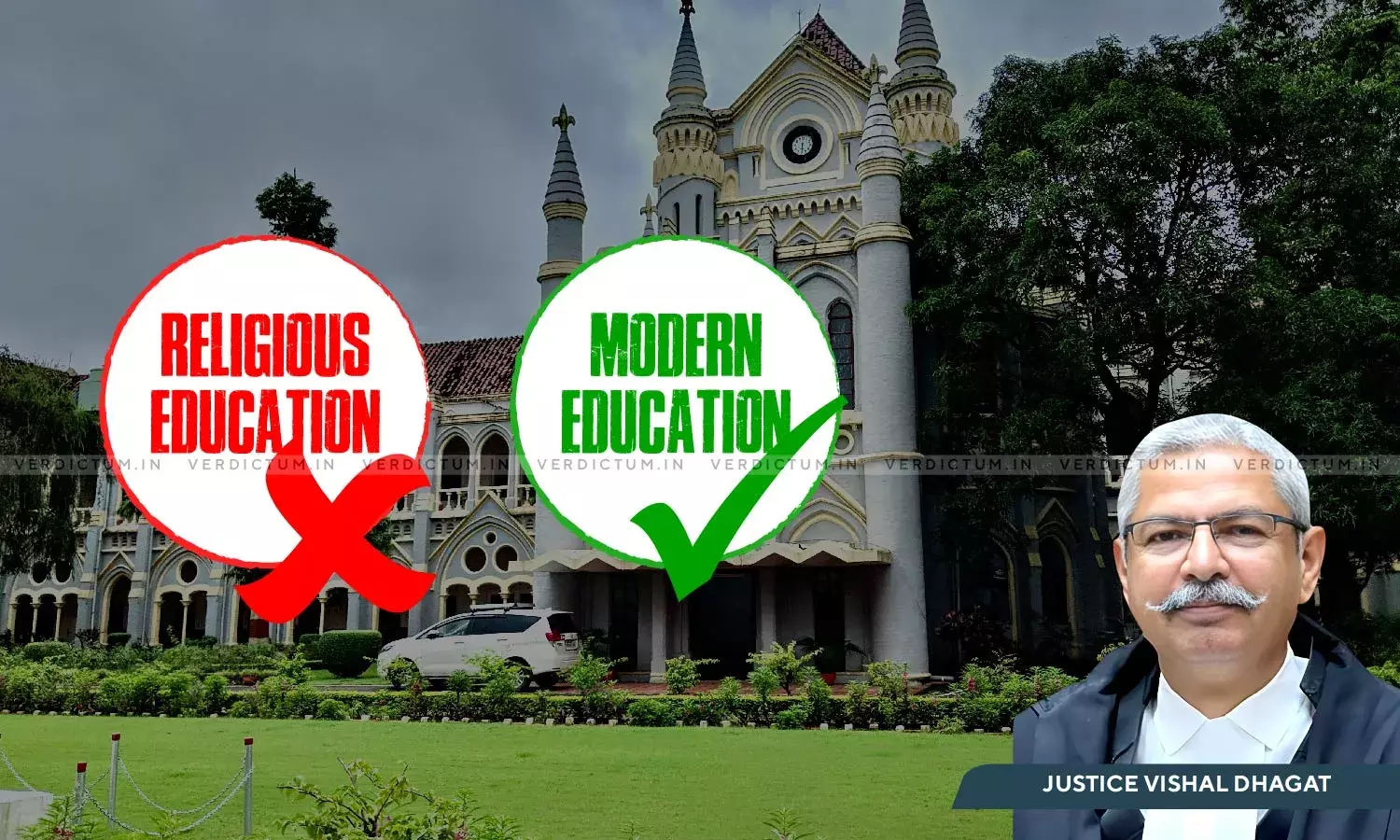Child-Care-Home Children Allegedly Forced To Read Bible: Madhya Pradesh HC Directs Imparting Modern Education & Not Religious Teaching

The Madhya Pradesh High Court recently directed the State Government to see that religious education is not imparted in shelter homes to children but they are imparted modern education, as laid down in Section 53 of the Juvenile Justice (Care and Protection of Children) Act, 2015.
The Single Judge Bench of Justice Vishal Dhagat was dealing with an application under Section 438 of the Code of Criminal Procedure for the grant of anticipatory bail to one Arch Bishop of the Roman Catholic Church and a Sister of Convent Institute for allegedly forcing Hindu children to read Bible and visit the church.
On a complaint by one Prank Kanungo, who was inspecting the Child Care Institute, the applicants were booked under Section 7 of the Juvenile Justice (Care and Protection of Children) Act, 2015, and Sections 3 and 5 of M.P. Freedom of Religion Act, 2021. It was alleged in the complaint that children were not allowed to celebrate Diwali and were forced to do Christian prayer.
Appearing for the Applicants, Senior Advocate Brian D'Silva contended that the applicants were innocent and falsely being implicated in the case as Section 54 of JJ Act, 2015 provides for inspection of Child Care Institute through an Inspection Committee comprising of not less than three members, of whom at least one should be a woman and one Medical Officer while to the contrary inspection was carried singularly by the complainant.
It was further stated that FIR cannot be registered by police on the complaint of Prank Kanungo as Section 4 of M.P. Freedom to Religion Act, 2021 provides that police officer shall not inquire or investigate a complaint unless a written complaint is submitted by a person converted or his parents or siblings or with the leave of the Court by any person who is related by blood, marriage or adoption, guardianship or custodianship to the person aggrieved. It was also argued that if children are found with Bible or were making prayers in Church, the same cannot be said to be religious conversion.
Appearing for the State, Additional Advocate General H.S. Ruprah submitted that the act of applicants is squarely covered under Section 3 of M.P. Freedom of Religion Act, 2021. He further stated that this is a case of mass conversion as more than two children in Child Care Home are forced to read Bible, visit Church and offer prayer forcefully, therefore, the offence is serious in nature. It was submitted on going through statements of children of Asha Kiran Institute, it is clear that attempt was made to convert the children and the applicants are conspiring for conversion.
The High Court after considering the submissions made and going through the provisions of the Justice Juvenile Act noted that "Education which has been described in Section 53(1)(iii) does not mean religious education. Management of shelter homes is to be provide secular education to students, which will result in their growth. Education means modern education which will be helpful in growth of children and will also help them in earning livelihood in later part of their life. It is also provided that children between 6 to 14 years has right to get free and compulsory education under Free and Compulsory Education Act, 2009. They are to be taught skill development, occupational therapy and life skill education but, said Section does not provide for religious education".
The Bench further observed that institutes are required to provide education as defined in Juvenile Justice Act, 2015 and accordingly directed that "Therefore, it is for the State Government to see that religious education is not imparted in shelter homes to children but they are imparted modern education, as laid down in Section 53 of Juvenile Justice (Care and Protection of Children) Act, 2015."
On the aspect of the maintainability of the complaint, the Court agreed with the view of the applicants and noted that "In the present case, the complaint has been lodged by an individual who conducted inspection. No complaint has been made by person converted or person aggrieved or against whom attempt is made for conversion or by their relatives or blood relatives. In absence of such written complaint, police does not have any jurisdiction to inquire or investigate into offence committed under Section 3 of Act of 2021."
Accordingly, the High Court directed that in the event of the arrest of applicants by the police in the aforesaid FIR, applicants shall be released on anticipatory bail.
Cause Title: Jerald Alameda & Anr. v. the State of Madhya Pradesh

